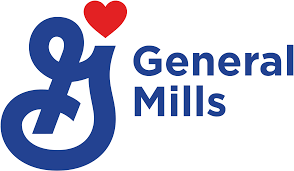Company enrolls 115,000 acres in regenerative agriculture program, gives $98 million to charitable causes, spends $318 million with diverse suppliers in the U.S.
MINNEAPOLIS, Minnesota — General Mills today released its 2022 Global Responsibility Report, highlighting progress made against environmental and social commitments in the 2021 fiscal year, which ended May 30, 2021. The annual update, which marks 52 years of reporting for the company, showcases actions and outcomes across four priority areas: Planet, People, Community and Food.
“Since our founding, General Mills has believed doing good and good business should go hand-in-hand,” said Jeff Harmening, chairman and CEO, General Mills. “These past few years have challenged us to do more, and I’m proud to say that we met the moment. We have nourished more families, provided extra care for our hometown communities, supported our employees in new ways and advanced our efforts to regenerate our planet. Our scale brings both opportunity and responsibility, and we’re more determined than ever to ensure the ‘G’ in General Mills stands for Good.”
In fiscal 2021, General Mills accelerated the farmer-led movement to advance regenerative agriculture, with more than 115,000 acres total enrolled in its program. The company also gave $98 million to charitable causes and spent $318 million with diverse suppliers in the U.S., representing minority, women, veteran, disability, and LGBTQ+-owned businesses
“General Mills continues to play a leadership role, working from the ground up to solve today’s food and agriculture challenges,” said Mary Jane Melendez, chief sustainability and global impact officer, General Mills. “We’re investing beyond our supply chain and working in key areas where we source our ingredients to drive meaningful impact. We believe regenerative agriculture is the most promising solution to reach our climate goals and create positive planet outcomes, and we’re committed to further advancing this work.”
Planet: Regenerating our planet
General Mills’ business is dependent on the earth. Climate change, coupled with increasing demand, compels the company to evaluate how it can increase resiliency — for the planet, people, and its business. General Mills is accelerating efforts across global planetary impact areas to achieve its commitments. Fiscal 2021 highlights include:
- 115,000 acres total enrolled in the company’s regenerative agriculture program, with a commitment to advance regenerative agriculture on one million acres of farmland by 2030
- Eighty-nine percent of packaging globally is recyclable or reusable by weight, with a commitment to achieve 100 percent of packaging to be recyclable or reusable by 2030.
- Sourced 63 percent renewable electricity across global operations, with a commitment to source 100 percent by 2030.
People: Putting people first
General Mills creates a seat at the table for all employees and perspectives. The company fosters a safe, inclusive, and rewarding workplace, while pursuing meaningful change on issues of racial and social injustice in its communities. Fiscal 2021 highlights include:
- Ninety percent of employees say the company is a great place to work, up four percent from 2020.
- More than 50 percent of professional positions are held by women globally.
- Spent more than $318 million with diverse suppliers in the U.S., representing minority, women, veteran, disability, and LGBTQ+-owned businesses.
Community: Improving food security and strengthening communities
General Mills is committed to strengthening its hometown communities through increasing food security, charitable giving, employee volunteerism and more. Fiscal 2021 highlights include:
- Gave $98.3 million to charitable causes in fiscal 2021.
- Enabled nine billion meals worldwide through philanthropic partners and food donations.
- Supported access to daily nourishing school meals for one million children worldwide.
- More than 80 percent of employees worldwide volunteered time in their communities.
Food: Making food the world loves
From pets to parents and everyone between, General Mills makes food the world loves.
The company’s portfolio delights consumers and meets their diverse interests and needs. Fiscal 2021 highlights include:
Remains the largest provider of natural and organic packaged food, and now the third largest producer of gluten-free food in the U.S.
Forty-one percent of General Mills’ global volume met the company’s criteria for Nutrition-Forward Foods.
Ninety-nine percent of the company’s cereal portfolio provides at least eight grams of whole grain.
In fiscal 2021, General Mills continued its progress to stand for good. In the face of COVID-19 and global supply chain disruptions, the company delivered value for its stakeholders and made progress against its environmental and social commitments. In the year ahead, General Mills will continue to take bold action to drive change for people, the planet and communities around the world. To learn more about General Mills’ progress, visit GeneralMills.com/howwemakeit.
General Mills plans to webcast an Environmental, Social and Governance (ESG) investor event on May 4, 2022, including a pre-recorded presentation and a live question-and-answer session with management. The webcasted session will begin at 7 a.m. CT. Interested parties can access the webcast and supporting materials at GeneralMills.com/investors.
About General Mills
General Mills makes food the world loves. The company is guided by its Accelerate strategy to drive shareholder value by boldly building its brands, relentlessly innovating, unleashing its scale and being a force for good. Its portfolio of beloved brands includes household names such as Cheerios, Nature Valley, Blue Buffalo, Häagen-Dazs, Old El Paso, Pillsbury, Betty Crocker, Yoplait, Annie’s, Wanchai Ferry, Yoki and more. Headquartered in Minneapolis, Minnesota, USA, General Mills generated fiscal 2021 net sales of U.S. $18.1 billion. In addition, the company’s share of non-consolidated joint venture net sales totaled U.S. $1.1 billion.
